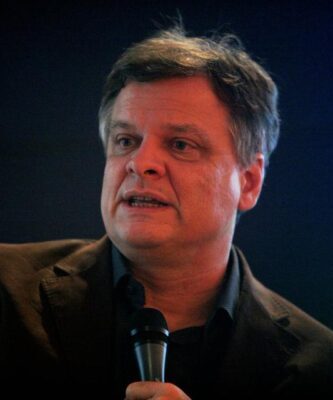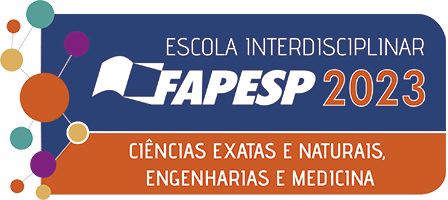Minibio
Fabio Rubio Scarano

Professor Titular da Cátedra Unesco de Alfabetização em Futuros (desde janeiro de 2023), uma parceria entre o Museu do Amanhã (Instituto de Desenvolvimento e Gestão) e a Universidade Federal do Rio de Janeiro, onde atua desde 1993 como Professor Titular de Ecologia.
Formou-se Engenheiro Florestal pela Universidade de Brasília (1986) e Ph.D. em Ecologia pela Universidade de St. Andrews, Escócia (1992). Realizou estágio pós-doutoral no Jardim Botânico do Rio de Janeiro (1992), é membro da Linnean Society of London (desde 1995) e foi Professor Visitante na Universidade Tecnológica de Darmstadt, Alemanha (2002) e na Universidade de Minnesota, EUA (2003). Foi Coordenador da Área de Ecologia e Meio Ambiente na CAPES/MEC (2005-2011) e Diretor de Pesquisas Científicas do Jardim Botânico do Rio de Janeiro (2007-2009). Foi autor principal dos Painéis Brasileiro (PBMC; 2011-2014), e Intergovernamental de Mudanças Climáticas (IPCC; 2011-2014) e autor coordenador para o Painel Intergovernamental de Biodiversidade e Serviços Ambientais (IPBES; 2015-2018). Foi também cofundador e coordenador geral da Plataforma Brasileira de Biodiversidade e Serviços Ecossistêmicos (BPBES; 2015-2019). Pertenceu ao quadro de líderes da ONG Conservation International, onde foi Diretor Executivo para o Brasil (2009-2011) e Vice-Presidente Sênior para as Américas (2011-2015). Foi Diretor Executivo da Fundação Brasileira para o Desenvolvimento Sustentável (2015-2018). Possui dois Prêmios Jabuti de Literatura, na categoria de Ciências Naturais: um segundo lugar em 2013, com o livro “Biomas Brasileiros: Retratos de um País Plural”; e um primeiro lugar em 2015, com o livro “Mata Atlântica: Uma História do Futuro”.
The regeneration of GAIA
This talk interweaves objective and subjective views, projecting a new map with three paths, or types of narratives, leading to Gaia: Gaia in time, Gaia at her core, and Gaia in the imaginary. These three interwoven narratives provide a view from multiple perspectives. Postmodern discourse and the discourse of the planetary socioenvironmental crisis have met infrequently. While postmodernism is discussed predominantly in art and culture, the socio-environmental crisis is more usually addressed by science and technology. Philosophy addresses both discourses, but usually separately. Since the aforementioned crisis is a consequence or by-product of the Enlightenment project and modernity, the need to merge the socio-environmental discourse with that of post-modernism is obvious. This, to a great extent, evokes dialogue and communion between art, culture, science, and technology. The regeneration of Gaia – planet Earth – involves healing the fracture that exists between different ways of interpreting reality. It requires creating a skin of ideas and intentions capable of connecting those worldviews that have been reduced to modules.
